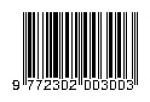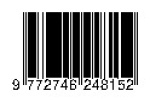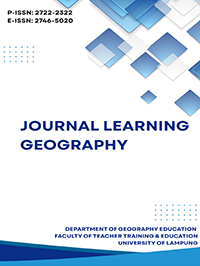ADDITIONAL MENU
Publication Ethic
Journal Publisher Ethics of Code
- Define the journal's name, scope of knowledge, timeline, and accreditation.
- Determine the composition of the editorial board.
- Establish the relationship between the publisher, editors, peer reviewers, and other parties in contracts.
- Respect the confidentiality of contributors, researchers, authors, editors, and peer reviewers.
- Apply norms and regulations regarding intellectual property rights, especially copyrights.
- Conduct policy reviews on the journal and present them to authors, the editorial board, peer reviewers, and readers.
- Develop an ethics code for editors and peer reviewers.
- Publish the journal regularly.
- Ensure the availability of resources for the sustainable publication of the journal.
- Build partnerships and marketing networks.
- Prepare necessary permits and other legal aspects.
Editor’s Code of Ethics
- Enhance the quality of publications.
- Ensure processes are in place to maintain the quality of published papers.
- Promote freedom of expression in presenting opinions.
- Uphold the integrity of the authors' academic records.
- Submit corrections, clarifications, retractions, and apologies when necessary.
- Take responsibility for organizing and formatting papers, while the content and statements within the paper are the author's responsibility.
- Review the journal’s policies and attitudes toward authors and peer reviews to improve accountability and minimize errors.
- Be open-minded in accepting new ideas or perspectives that differ from personal views.
- Avoid defending our own opinions, the author’s, or third parties in ways that could lead to incorrect decisions.
- Encourage authors to continue improving their papers until they are suitable for publication.
Peer Review Code of Ethics
- Accept the task from the editor to review papers and submit the review to the editor as part of the decision-making process for paper publication eligibility.
- Review papers in a timely manner, following style guidelines based on scientific principles (data collection methods, authorship legitimacy, conclusions, etc.).
- Review revised papers according to the established standards.
- Encourage authors to improve their papers by providing feedback, suggestions, responses, and recommendations.
- Maintain the privacy of the author by keeping the corrections, suggestions, and recommendations provided confidential.
- Reviewers should not review any paper that involves their own work, either directly or indirectly.
- Follow the peer review guidelines when reviewing papers and assess the paper using the evaluation form provided by the editor.
- Review papers substantively without focusing on grammar, punctuation, and typographical errors.
- Ensure the principles of truth, novelty, and originality; prioritize the benefit of the work for the advancement of knowledge, technology, and innovation; and understand its impact on the development of scientific writing.
- Avoid defending personal opinions, the author's, or third parties' opinions that may lead to biased decisions.
- Uphold the value of objectivity and remain free from any external influence.
- Ensure the confidentiality of the findings in the paper until it is published.
- Possess broad expertise and be able to review papers accurately and appropriately.
- Refuse to review papers outside your area of expertise. In such cases, the peer reviewer should recommend other experts in the field.
- Be open-minded in accepting new opinions or perspectives that differ from your personal views.
- Decline to review if the deadline set by the editor cannot be met. If no deadline is set, the peer reviewer should inform the editor as soon as possible.
- Review outcomes should be communicated honestly, objectively, and supported by clear arguments. Some recommendations that can be given from the review include: (1) Accepted without revision, (2) Accepted with minor revisions (after correction by the author, no need for further peer review), (3) Accepted with major revisions (after correction by the author, sent back to peer review), (4) Rejected and recommended for publication elsewhere, and (5) Rejected and recommended not to be published due to serious scientific flaws.
- The final rejection recommendation should be the last option regarding the paper’s eligibility or indicate serious ethical violations by the author.
- The manuscript under review should not be used for personal purposes or by third parties. Additionally, using any part of the manuscript requires the author’s permission
Author’s Code of Ethics
- Authors are collectively responsible for the work and content of the article, including methods, analysis, calculations, and details.
- Authors must respond to peer review comments professionally and in a timely manner.
- Authors should inform the editor if they withdraw their paper.
- Authors must disclose any limitations in their research.
- Authors respect the publisher’s request not to release findings in interviews or other media before publication.
- Authors should inform the editor if the paper is part of ongoing, multi-disciplinary research or presents different perspectives.
- Authors must assert that the submitted paper is original, has not been published elsewhere in any language, and is not under consideration by another publisher.
- If there are errors in the paper, authors must immediately inform the editor or publisher.
- Use of materials from other copyrighted publications must receive written permission and appropriate acknowledgment.
- Authors must cite other works correctly when referencing ideas, quotations, or data used in the paper.
- When presenting new findings or enhancing existing ones, authors should acknowledge the work of previous researchers/authors/founders.
- Authors are not permitted to include references to publications they have not read.
- If requested, authors must provide evidence that their research complies with ethical research standards, including field notes.
- Authors should only respond to comments or feedback after the manuscript has been published.









